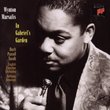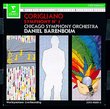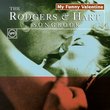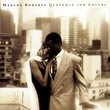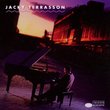| All Artists: Edith Mathis, David Hill, Jorma Hynninen, Trudeliese Schmidt, Richard Versalle, Edith Wiens Doris Soffel, Hans Sotin, Nadine Denize, Ladies of London Philharmonic Chorus Southend Boys' Chor Title: Mahler - The Complete Symphonies / LPO, Tennstedt Members Wishing: 0 Total Copies: 0 Label: EMI Classics Release Date: 11/3/1998 Album Type: Box set Genre: Classical Styles: Historical Periods, Early Music, Symphonies Number of Discs: 11 SwapaCD Credits: 11 UPC: 724357294126 |
Search - Edith Mathis, David Hill, Jorma Hynninen :: Mahler - The Complete Symphonies / LPO, Tennstedt
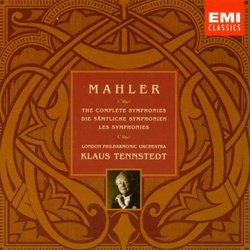 | Edith Mathis, David Hill, Jorma Hynninen Mahler - The Complete Symphonies / LPO, Tennstedt Genre: Classical
Hot on the heels of DG's new reissue of the Bernstein's complete Mahler symphonies and song cycles, EMI has repackaged Klaus Tennstedt's recordings of all 10 symphonies. Although he remade symphonies 5 through 7, these are... more » |
Larger Image |
CD DetailsSynopsis
Amazon.com Hot on the heels of DG's new reissue of the Bernstein's complete Mahler symphonies and song cycles, EMI has repackaged Klaus Tennstedt's recordings of all 10 symphonies. Although he remade symphonies 5 through 7, these are his first versions, essentially the same performances that used to be available in three separate boxes at mid price. Now at budget price, and at virtually a third of the cost of DG's Bernstein set, Tennstedt's Mahler is one hell of a bargain. The performances aren't as consistent as Bernstein's. The London Philharmonic was never a great Mahler orchestra, and minor errors are fairly common, especially in the Sixth Symphony, which was the conductor's own favorite among all his recordings despite the lapses in the brass section. It's a performance of frightening intensity, and it's easy to understand his affection for it. All of Tennstedt's Mahler features such spontaneity, emotional honesty, and real human warmth that reservations about execution and sound largely fall by the wayside. Hearing it again is a deeply moving experience. --David Hurwitz Similar CDsSimilarly Requested CDs
|
CD ReviewsTennstedt's Mahler Cycle: A Best Buy Jeffrey Lipscomb | Sacramento, CA United States | 03/18/2005 (4 out of 5 stars) "Whether you are new to Mahler or just a fellow Mahler enthusiast looking for yet another way of hearing these wonderful works, this well-recorded 11-disc set strikes me as a clear "best buy." I recently acquired a brand-new, sealed copy from one of Amazon's alternative vendors for about $40, which works out to less than $4 per CD. On 19 December 1974 I was fortunate to attend Klaus Tennstedt's American debut concert with the Boston Symphony. The sole work was Bruckner's 8th Symphony (I am amazed to discover that I still have the concert program). The East German conductor was tall, gaunt, and seemingly rather un-coordinated: he almost fell down on his way to the podium. But once he lifted his baton, egad! The BSO, which often sounded so dispirited under Ozawa, immediately caught fire and delivered one of the greatest performances in my entire concert-going experience. Sadly, Tennstedt's later studio recording (different orchestra) was just a shadow of what I heard in Boston. My interest in Tennstedt was re-ignited a couple years ago by the purchase of an expensive ($225) box set of "live" Mahler recordings put out by the NY Philharmonic. Its main attraction was the opportunity to hear the legendary Mitropoulos 6th (superb!), the 1950 Stokowski 8th (excellent, but no match for Horenstein's), and Walter's Das Lied with Ferrier and Svanholm (preferable over-all to Walter's famed 1952 studio effort on Decca). But the set's two biggest surprises were a hypnotic 7th under Kubelik and a staggeringly brilliant Tennstedt 5th: I can't recall EVER hearing the orchestra sound quite this good in Mahler under Bernstein. The present Tennstedt set is not at that rarefied level: these are studio readings with a fine but lesser ensemble. The 1st is fairly straightforward and beautifully played, if lacking a little in the klezmer music's inherent vulgarity. The 2nd is very satisfying if, like me, you prefer a less interventionist version than Bernstein's. Regrettably, the sound here is rather recessed - you really have to turn up the volume to achieve sonic impact. The 3rd is better played & recorded than Horenstein's, if not quite its interpretive equal. Tennstedt's 4th is excessively hasty in the first mvt. and Lucia Popp's singing is rather over-extended in the 4th mvt. Beautiful slow mvt., though. The 5th, while to my ears clearly superior to both Kubelik and Bernstein, is not as brilliant as Tennstedt's later live EMI version or the live NY Phil. account. The 6th is a bit "over the top" for my taste and has some messy brass playing, but it's an unquestionably committed account. The 7th is a little tentative in the first mvt. but fine thereafter. The 8th has, along with the 3rd, the set's best recorded sound. It's a performance of real stature, despite an under-sized chorus ("the symphony of 500?"). The 9th is somewhat heavy until the last mvt., which is gorgeously played (likewise the Adagio from the 10th). So Tennstedt's set, like everybody else's, is a bit uneven. His main competition in the complete set sweepstakes comes primarily from Bernstein (Sony) and Kubelik (DG). Bernstein's is a highly proselytizing Mahler, with frequent dramatic underlinings and triple exclamation points: to my ears Lenny is just a little too exaggerated and inveigling. Kubelik has a rather rustic-sounding orchestra and often veers toward quickish tempos, with recorded sound that is uncomfortably bright and bass-deficient. If you are looking for a first-ever set in reasonably decent sound, this Tennstedt offering is probably the best choice (and by far the cheapest). Ultimately, just as a meal prepared from scratch will satisfy more than a TV dinner, I feel that choosing individual readings from a variety of conductors is the most satisfying course to pursue. My suggestion: buy this cheap Tennstedt set and then garnish it with some of the best individual offerings, plus a completed version of the 10th and a Das Lied (a symphony in all but name). Here are my current preferences in addition to this Tennstedt set: #1. The live Kubelik (Audite) is just about perfect - it's even better than his two studio versions. The mono Horenstein on Vox (great interpretation, some scrappy playing) is closer to how the music was played in Mahler's day (e.g., lots of lovely string portamento), and it's available for just $3.98 from Berkshire Record Outlet. #2. The Scherchen (Millenium), despite some eccentric tempos, has choral entries steeped in mysticism, and Mimi Coertse's glorious soprano voice is unmatched for innocent radiance (what a shame she didn't do a 4th with Scherchen). The studio Klemperer (EMI) is excellent, but I prefer his more urgent live 1951 Amsterdam account, with Ferrier's unforgettably valiant Urlicht (recently available on a Membran CD for just $2.99 at broinc.com). #3. Horenstein (Unicorn) is simply indispensable. Another of my favorite 3rds comes live from Jean Martinon and the Chicago Symphony. It features spot-on ensemble, a deeply-felt interpretation, and sensational recorded sound. It's available only in an expensive ($225) 10-disc set from the CSO (which includes an outstanding live Bruckner 7th with Tennstedt). I also admire the big-hearted Barbirolli 3rd (BBC) and Mahler disciple F. Charles Adler's old-fashioned account (Tahra). #4. Kletzki (EMI) now strikes me as the finest stereo reading. Would somebody PLEASE re-issue the enchanting Otterloo (Epic LP)? Stich-Randall's ingenuous soprano was just about ideal. And, last but not least, there's the Mengelberg (on Q Disc and other labels) with the appealing soprano of Jo Vincent. #5. Tennstedt/NY Phil. is breathtaking, even though I prefer a quicker Adagietto (i.e., Mengelberg's stand-alone reading). A more blunt and very well-played account is Barshai's (coupled with #10 on Brilliant Classics). The early Scherchen (DG Westminster) is also a classic. #6. My favorites: Barbirolli (EMI), in spite (or perhaps because) of the slow 1st mvt., the blazing live Mitropoulos/NY Phil., and the live Rosbaud (much in need of CD re-issue). #7. The aforementioned Kubelik/NY is magical, even though the 1st mvt. is quite slow. Scherchen (Orfeo) and Rosbaud (Wergo) present Mahler in a more avant-garde guise: both are riveting performances. The Bernstein/NY Phil. (Sony) strikes me as that conductor's finest Mahler recording. #8. Horenstein (BBC) carries the day for me. The 1950 Scherchen (Tahra) has problematic sound and some pretty awful singing: soprano Illitsch sounds like a mis-placed Brunnhilde, and mezzo Anday's wobbly vibrato reminds me of Bert Lahr singing "If I Were King of the Forest." But there are moments (the last ten minutes especially) where Scherchen achieves a Furtwanglerish intensity that is hair-raising. #9. Two that really stand out: Ancerl (Supraphon), especially his electrifying Rondo Burleske, and the mono Horenstein on Vox. #10. My favorites: Wyn Morris (an Adagio of heart-rending loneliness) and the Martinon/Chicago (too fast in the Adagio but brilliant otherwise; available only in another wallet-depleting 12-CD box set). The Morris (Philips LP) is WAY overdue for a CD transfer. Barshai's 10th (coupled with his 5th on budget label Brilliant Classics) is excellent. Das Lied. Kubelik (Audite) with Baker & Kmentt is a superb all-round choice. The 1939 Schuricht (Minerva, etc.) has Ohmann's Melchior-like heldentenor (extraordinary!). The finest studio set is probably the Klemperer with Ludwig & Wunderlich (EMI). Ludwig is even better with Kmentt in a live Carlos Kleiber set on Golden Melodram (but the sound is rather poor). This Tennstedt set is a fine and inexpensive introduction to Mahler's symphonies. After adding a completed 10th, a Das Lied, and perhaps a few supplementary readings, you can then sit back and revel in many hours of glorious music making. " Moving, Intense Mahler (and an incredible bargain!) tvarley@frontiernet.net | Otisville, NY | 03/27/1999 (5 out of 5 stars) "A colleague once said of Klaus Tennstedt that he didn't know any "Little" works. Tennstedt made music with broad strokes and showed an intense belef in the works he lead. His repertoire as Music Director of the London Philharmonic may have been broader but US audiences probably remember him for his passionate performances of the symphonies of Bruckner (I believe his first US performance was a BSO Bruckner 8th in 1974) and especially Mahler.This set features recordings Tennstedt made over a number of years and some may prefer his later recordings of the 1st (with the Chicago Symphony) and the 5th, both recorded in concert near the end of his all too short career but the LPO performances are themselves well worth listening too. The playing is not perfect. There are sloppy attacks (especially in the 6th and 9th) and despite having had both Bernard Haitink and Georg Solti as previous directors, the LPO does not immediately pop into mind as a Mahler orchestra, like Chicago, Vienna or the Concertgebouw. Still, they play their hearts out for Tennstedt and heart, a real depth of feeling, is what a great Mahler performance is all about. The peaks of this set are the 3rd (the only performance I have heard that matches the Horenstein) and the 8th, a performance of this odd conflation of quasi-liturgical music with quasi-opera (the almost hour long 2nd movement is a setting of passages from Goethe's Faust)that makes it work and soar like none other. The ghostly 7th, the so-called "Song of the Night", is another high spot with Tennstedt taking the LPO brass for a glorious ride through the manic finale. The 6th will leave you shaken and the 9th and 10th (Adagio only) plumb the emotional depths. Tennstedt, like Mahler, left us too soon and you wonder as you listen if the often frail conductor identified with the composer as he conducted these scores.The only performance that doesn't really catch fire is the 2nd, "Resurrection", and at this price you can afford to go out and pick up Bruno Walter's NY Philharmonic recording to fill in the gap.There's no telling how long this will be around at this price, so don't miss it." Heartfelt Mahler, without the Bernstein distortions. Andrew Iwasyszyn | England | 01/30/2000 (5 out of 5 stars) "If like me, the arrival of this set appeared when your collection of Mahler symphonies was already bursting, then do not be put off! The box is small neat and extremely good value. The sound quality is first class throughout, with most being crystal-clear digital or late analogue. However, it is the performances which stand out. The L.P.O. is not without mistakes, but the beauty and feeling that Tennstedt draws out of the works is unbelievable. The eighth is the best on record. It is highly atmospheric, despite not having the forces that Solti had to work with: the eerie opening of the second half, works to perfection. The point is that the whole essence of Mahler is his ability to portray human emotions through his music and as a result this set MUST be added to your collection. Tennstedt clearly understood, arguably better than any other conductor the emotions that Mahler wanted to create, without pulling phrases around and drawing the music out so that it almost becomes recognisable. You may have a symphony you do not like. For me, seven does not work, but at this price you can buy it and still afford Abbado's excellent Chicago recording as well!"
|

 Track Listings (5) - Disc #1
Track Listings (5) - Disc #1
